Afrika’s Heroes
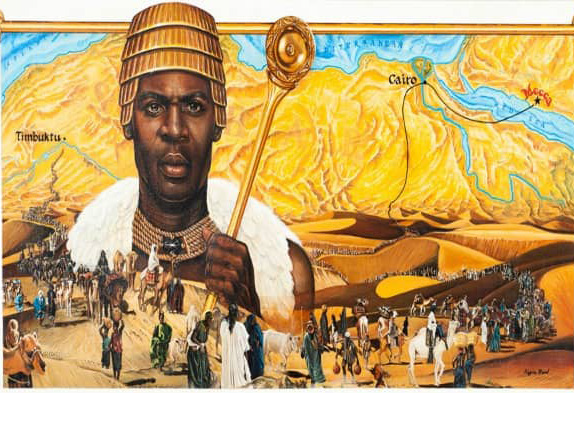
Passionate about getting God's message concerning Afrika and the end…
MANSA MUSA I
Rich beyond description. That seems to sum up Mansa Musa I of Mali’s great abundance of material wealth. (Mansa means King) The African ruler, described as young and handsome, had vast wealth resources that caused the riches of Egypt and Europe to pale in comparison.

So vast that he disrupted Egypt’s economy as he passed by on his pilgrimage to Mecca, making gifts of alms to the poor, and making such great purchases of textiles and other goods as to cause the devaluation of gold in the Egyptian economy. According to some, it took 12 years for Egypt to recover. It is also said that his lavish spending also caused ripples in the economies of Medina and Mecca. But
Mansa Musa 1 didn’t start out that way.
Historical accounts state that his grandfather was the brother of Sundiata Keita who founded the Empire of Mali, but the throne never came to his grandfather or his father. So, how did he come to be Mansa? In the early 1300s, Mansa Abubakr II set sail with a large entourage on an expedition to discover the limits of the Atlantic Ocean, leaving Musa Keita to act as regent of the kingdom in his absence. Abubakr didn’t return though, and so, in the year 1312 Musa took over the throne in line with the existing laws of the Mali Empire.
The new Mansa inherited an already rich empire, Mali was extremely wealthy, with an abundance of copper and pure gold resources, the demand for which was high. Under Musa, the Malian Empire tripled in size and grew to cover what are now nine West African nations. He had an army of 100,000, which included an armored cavalry cor and a highly skilled general that were instrumental in the growth and maintenance of the empire. So vast was his empire that he divided it into provinces which were ruled by governors who he personally chose. He increased this wealth by trading in gold and salt, which were in high demand. He also exacted taxes on trade and by imposing a tribute on those he conquered. As a result, Mansa Musa’s wealth grew and grew.
12 years into his reign, a part of his vast material wealth was revealed to the world when he went on the famous economy disrupting pilgrimage. Mansa Musa had tens of thousands people in tow, his entire court was with him, about a hundred camels carrying gold and textiles and food. It was the most opulent display of wealth the world had seen. Along the way, he took the time to also extend his empire, making inroads into the Songhai Kingdom by acquiring the territory of Gao, one of the places where he would later build mosques and institutions of learning.
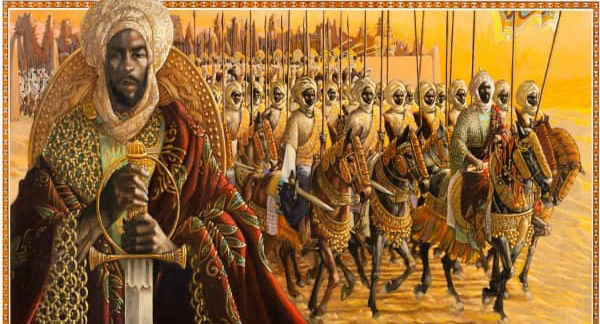
Mansa Musa returned from his pilgrimage with architects, books and scholars in tow to build mosques and universities throughout his domain. Many of the structures he commissioned or built are still standing to this day. The most famous mosque he built is the Djinguereber Mosque. This is how he spent the vast majority of his wealth. He eventually relocated his court to Timbuktu after he had taken it over and transformed it into an internationally recognized fortified city, making it famous for trade, education and religion. So great was the impact of his journey that word spread of him and his kingdom to Europe. Spanish cartographer, Abraham Cresques, even included a drawing of Mansa Musa in the 1375 Catalan Atlas. In this drawing he is depicted seated on a gold throne, adorned in a gold crown, with a gold scepter and holding a gold nugget in his hand.
Mansa Musa died at the age of only 57 leaving his empire to his sons, who were unable to keep it together. Gradually infighting, civil wars and attacks by the Touareg led to its weakening and eventually the smaller states seceded and the empire collapsed. Parting thoughts At the end of the day, how much can you take with you when you die? If you like, build a tomb and force your wives and servants to die alongside you… you still have only what you came into this world with. And you alone have to answer for what you did with Jesus.
BE INSPIRED
The story of Mansa Musa 1 is one that gives a clear clue of what the true Afrika really is as it relates to her massive human and natural wealth. However, it is not featured as part of our story so that Afrikans can learn how to be wealth or money crazy. Not at all. As an Afrikan reading this, you have been made to look weak, unreliable, primitive, dull, unintelligent by those who think your forefathers lived on trees. But that was a lie and will never be true. For you, as an Afrikan, came from a long lineage of kings, warriors, emperors, army generals, wealthy tillers of the earth and its resources, those who the kings of other nations outside Afrika bowed to in honor and fear. And because the Afrikan blood is rich and bold, it means you are also a king, emperor, wealthy and not some aid-begging, roadside thug and compromising individual. The story of Mansa Musa 1 shows the strength of an Afrikan who led an empire that conquered many lands, built institutes of worship and learning, a true Afrikan indeed. But let me tell you what this means. The entire story of Mansa Musa 1 is just a shadow compared to that of the coming King, Who, as a stone rejected by men in the days of His flesh, will cut out a stone without hands, set it up on the earth as a mountain and will bring to an end the kingdoms of this world. I speak of Christ, the King. For of the increase of His government and peace there will be no end, for upon the throne of David His father shall He sit and over His kingdom, shall He reign, to order it and establish it with judgment and justice, from this time forward, even forever. Be ready!
For counsel and wisdom to live in this age of the end of time, please use the contacts below:
counsel@msingiafrikamagazine.com
What's Your Reaction?
Passionate about getting God's message concerning Afrika and the end times to the world, in order to heal, restore and rebirth Afrika to her true purpose and destiny in God.











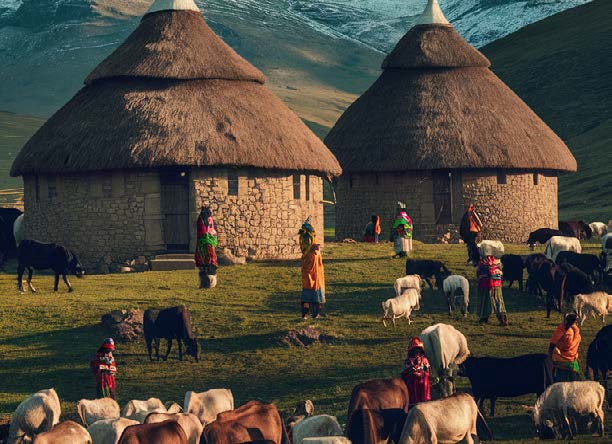
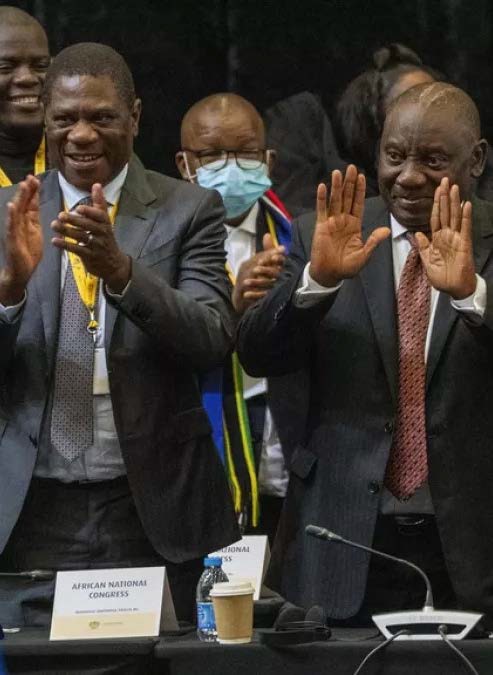

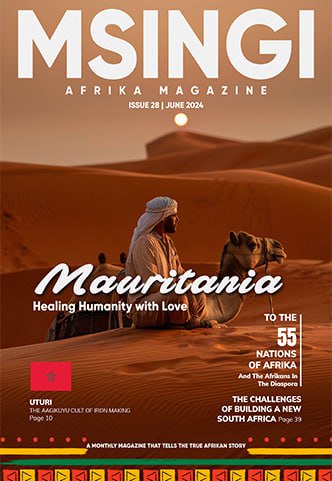




Impressive! Educative and thought provoking. Suitable read especially for young people. Keep it up!
Thank you for the encouragement. We sincerely appreciate it.